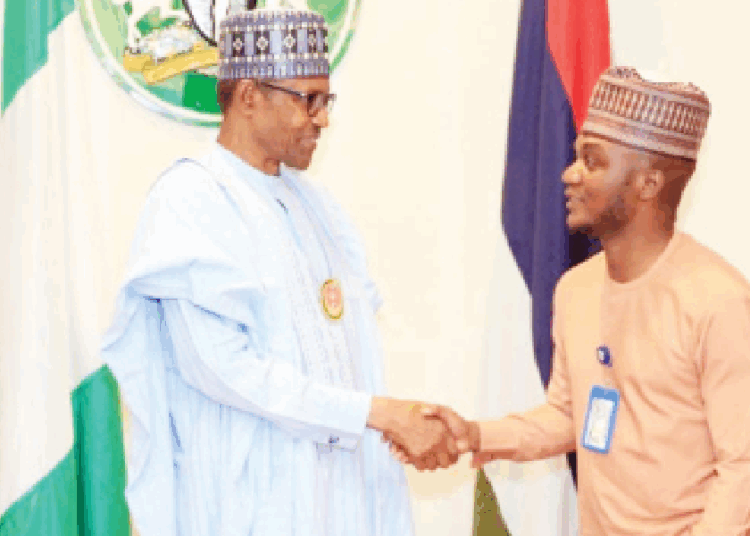When I joined the State House Press Corps in November 2015—six months into President Muhammadu Buhari’s first term—it felt like history was being written in real time. He had swept into office with a tidal wave of expectations, buoyed by promises of change, anti-corruption, and discipline. For many in my newsroom at LEADERSHIP, his victory felt like vindication. Not only had we projected a Buhari win over the incumbent Goodluck Jonathan, we also named him Person of the Year. And he showed up in person to receive the award—a rare gesture that signalled the beginning of a presidency many hoped would reshape the country.
For the next eight years, I had a front-row seat to the presidency. I saw the good, the bad, and the deeply misunderstood.
The Buhari of the campaign trail and news headlines was a rigid, no-nonsense man. Stoic. Stern. And for many, silent. But inside the Villa, away from the lenses and the press statements, there was another side. A president who laughed easily. A man who could surprise you with his dry wit.
One day, Kabiru—a late colleague of ours from Radio France—near the mosque at the Villa, wore a red cap strikingly similar to that of the late Chief of Staff, Abba Kyari. President Buhari beckoned him, smiling. “When I saw you, I thought you were my Chief of Staff,” he said. Kabiru, never missing a beat, replied, “I am also Chief of Staff… to the Press Corps chairman.” The laughter that followed was genuine, warm. And very human.
But the world rarely saw that Buhari. What the world saw, too often, were his misfired jokes. Like the time he told the Inspector-General of Police that he was losing weight—proof, in Buhari’s eyes, that the man was working hard. Or, more infamously, the moment in Germany when, standing next to Chancellor Angela Merkel, he declared that his wife “belongs to my kitchen, my living room and the other room.”
I was there.
I watched Merkel’s face freeze in bemused disbelief. I turned to Juliana Taiwo of The Sun and whispered, “Did he just say that?” We debated whether to file the quote. We didn’t need to—within hours, the remark had gone viral. The outrage, the memes, the think pieces. But behind that controversial statement was a man who never quite mastered the choreography of public relations in a social media age.
And perhaps that was Buhari’s greatest flaw—his inability to translate intention into perception.
Yet those who worked around him knew his heart was often in the right place. He was obsessed with timeliness. If a meeting was billed for 12:00 noon, Buhari would walk into the council chambers at 11:58. If you came late, you missed him. He believed governance was a serious job and should be conducted with discipline. Meetings were short and straight to the point—sometimes 10 minutes, rarely longer than 20. No grandstanding. No monologues.
He hated owing salaries. I remember how visibly upset he was when told that some state governors had not paid workers. “How do you sleep at night?” he asked them. And it wasn’t a rhetorical question—it was a genuine expression of his empathy for the common man.
That was the lens through which he saw governance: the poor first. If you wanted Buhari’s approval, just say it would benefit the poor. That’s why he approved state bailouts and Paris Club refunds without hesitation. That was the same principle behind his social investment programmes and agricultural support schemes. His concern for the downtrodden was not performative. It was instinctive.
Still, Buhari remained a man of paradoxes. He was fiercely private, yet head of a nation of 200 million opinionated citizens. He was disciplined, yet presided over an era sometimes accused of inertia. He sought to fight corruption, but was often accused of favouring loyalty over merit.
And then there was his humour—unpredictable, sharp, but often misread. Like when a delegation of female parliamentarians came to seek gender equity and suggested that henceforth, if the president is male, the vice president should be female. Buhari looked around the room and said, “It’s a pity the Vice President isn’t here, but I’m sure the SGF will brief him that his position is threatened.”
They laughed. The cameras rolled. But on Twitter, he was tone-deaf once again.
To cover Buhari was to constantly navigate this duality: the public and the private, the myth and the man. Some days were inspiring, others frustrating, but rarely was it boring. I remember travelling with him abroad and watching how seriously he took every bilateral engagement, even if he often let his ministers do the talking.





